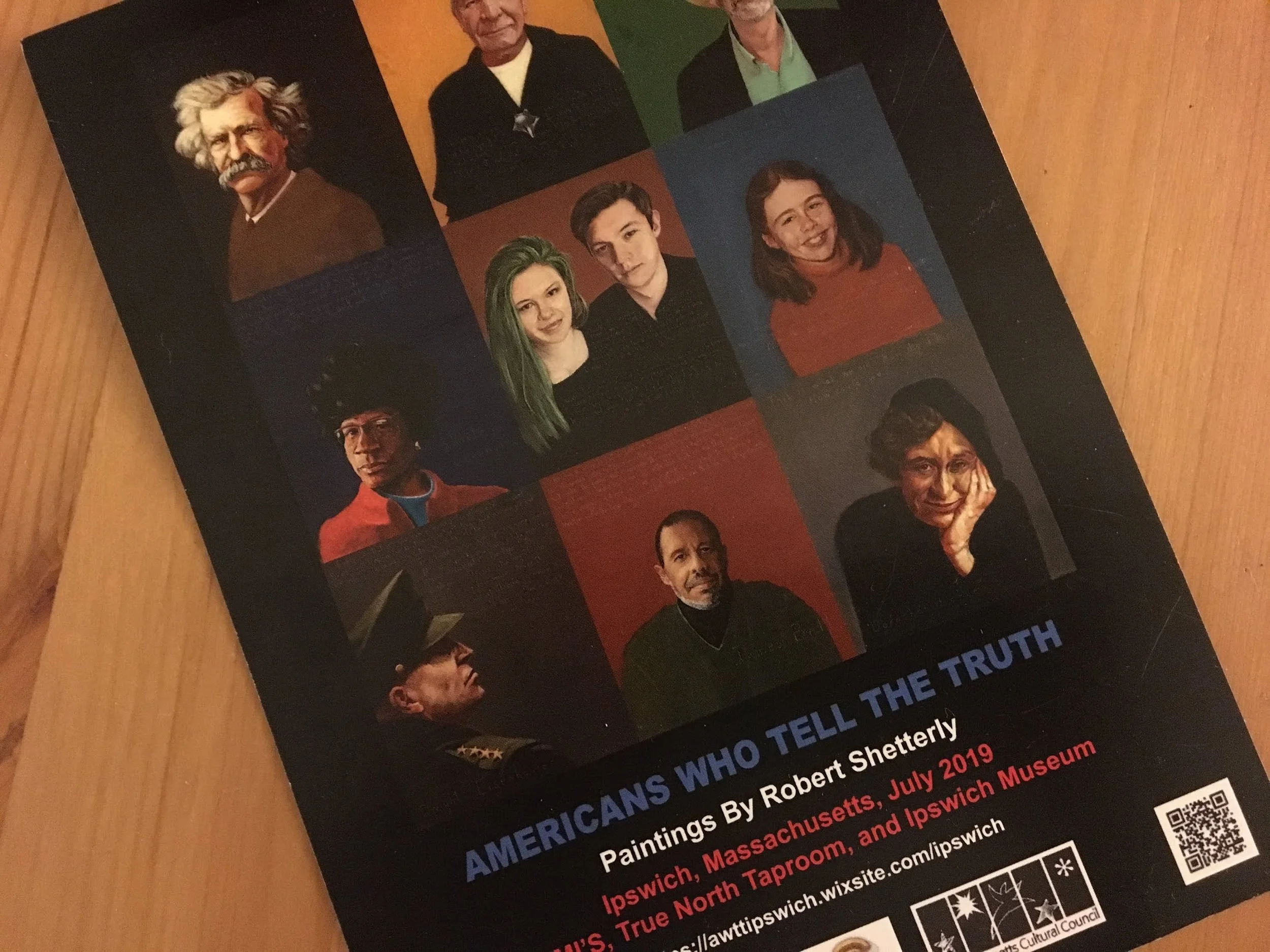This July, all of Ipswich is a-buzz with galleries and events centered around Robert Shetterly’s traveling portrait series, American Who Tell the Truth. The portraits depict “citizens who courageously address issues of social, environmental, and economic fairness,” and each feature an accompanying quote. These large, striking paintings are hanging at Zumis, the Ipswich Museum, and Truth North Brewery. They’re actually gorgeous.
At the end of the month I’ll be reading at a related event “Poets Who Tell the Truth” at the Hall-Haskell House. To make sure that I’m informed about what the heck I’ve signed myself up to participate in, I figured I ought to learn a bit more about the portrait series and the artist. And so I attended a lecture at the Ipswich Library, where Shetterly spoke about the history of the project and shared some selections from his collection of over 200 portraits.
It was a full house, and for good reason. Shetterly gave a great presentation, and I learned about some interesting and inspiring citizens from recent and distant history. These included:
Claudette Colvin: In 1955, this 15-year-old was arrested for refusing to move to the back of a bus in Montgomery, Alabama. Nine months later, Rosa Parks did the same. Unlike Parks, Colvin is largely forgotten.
Tim DeChristopher: In 2008, he infiltrated a rigged auction of Utah land that was to be handed over to oil and gas companies. He was convicted of fraud, but his actions led to regulators re-evaluating the sale. There’s also a documentary about him.
Richard Bowen: American banker and whistleblower who outed Citigroup’s mortgage fraud, which led in part to the 2008 financial crisis and recession. Citigroup keeps trying to shut him up, but he keeps talking, and now he teaches Business Ethics.
Dr. Mona Hanna-Attisha: A pediatrician in Flint, Michigan who witnessed, reported, and exposed the dangerous levels of lead in the drinking water and its health effects on children. She now leads an initiative to address the Flint water crisis.
Other people discussed included Oren Lyons, Kelsey Juliana, and Alicia Garza, and Walt Whitman.
Especially interesting was the Q&A portion, where Shetterly discussed how we should recognize these subjects as complex and flawed individuals who shouldn’t necessary be put upon any kind of pedestal. Susan B Anthony was a suffragist who fought hard for (white) women’s right to vote and was also a blatant racist. Frederick Douglass was an abolitionist who said outright anti-indigenous things in his speeches. In capturing a range of subjects, from the nationally famous to the locally notable, Shetterly’s goal is to show how the everyday citizen can be a catalyst for change and reform.

